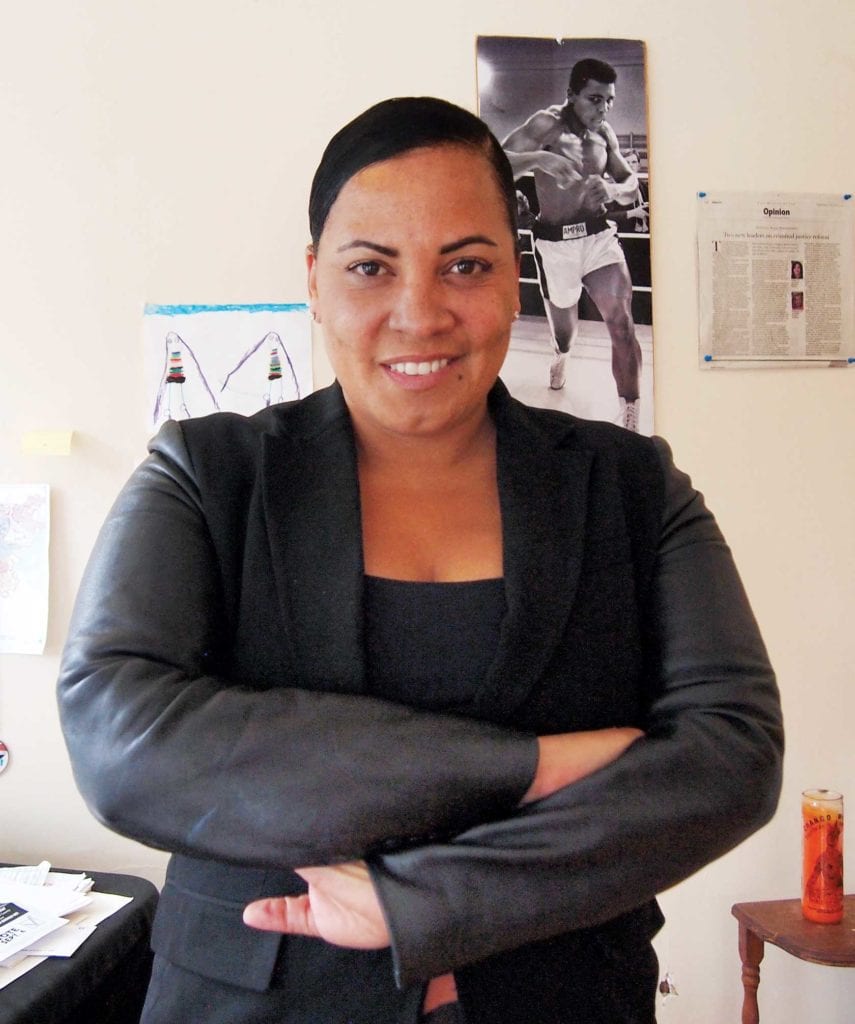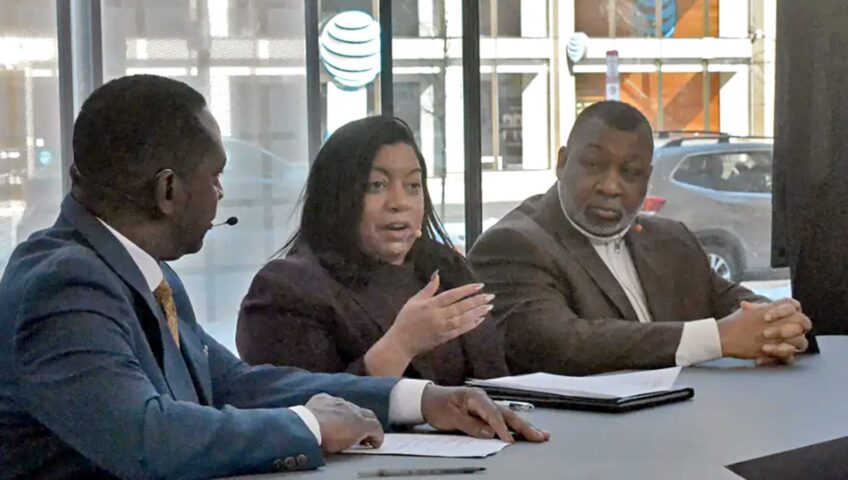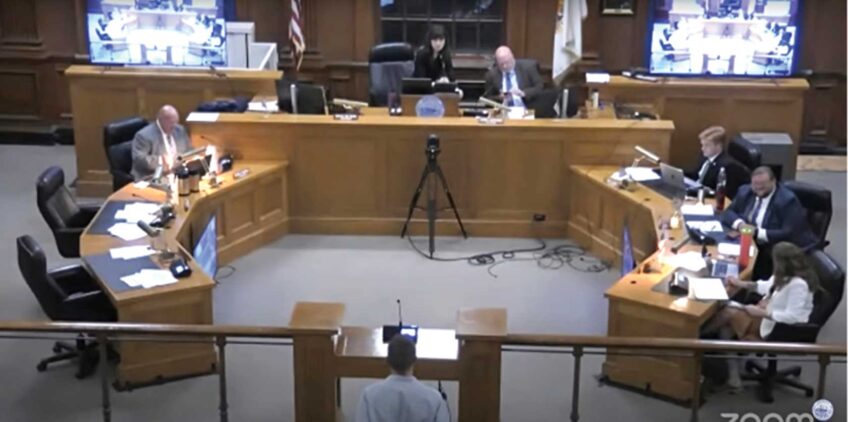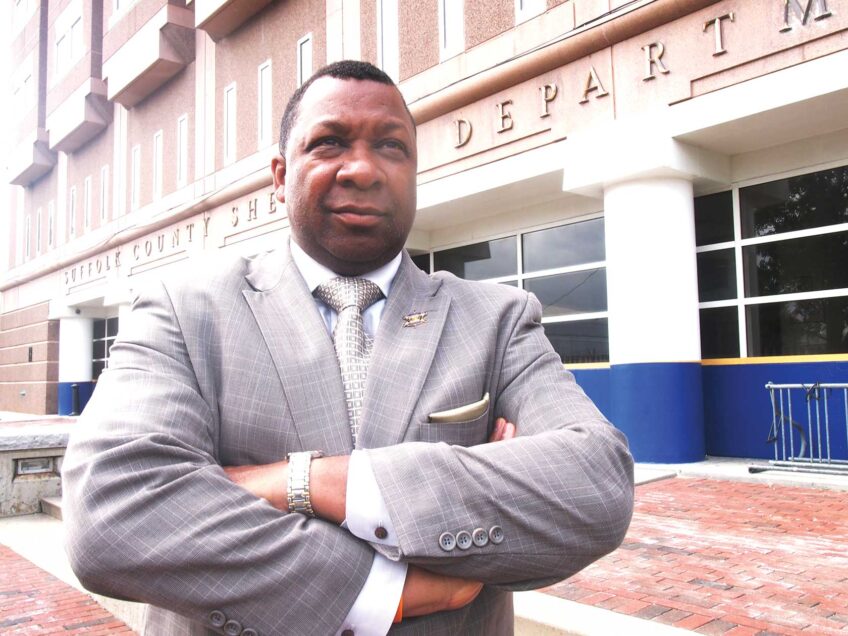Rollins rolls out policy changes
Assistant DAs will not prosecute misdemeanor crimes without approval

Suffolk County District Attorney Rachael Rollins officially released a policy memo Monday that includes action on her campaign promise to decline to prosecute 15 minor crimes.
“I made a promise to the residents of Suffolk County that for low-level, nonviolent offenses, I would emphasize declination or diversion whenever possible,” Rollins said in the memo, which was distributed to her staff Monday and released to the public Monday night. “That decision was part of a strategy to achieve two important goals: first, to reduce the footprint of the criminal justice system where it served no public safety interest, and second, to allocate more of our prosecution resources to the serious offenses that harm people, families, and the community as a whole.”
The policy comes a week after the American Civil Liberties Union of Massachusetts released a report using data from the tenure of former District Attorney Dan Conley that revealed that in 2013 and 2014, the 15 charges flagged by Rollins were dismissed nearly 60 percent of the time. In addition, only about 10 percent of cases that were prosecuted to a disposition during that time were exclusively charges from the “Decline to Prosecute” list.
“Our analysis begs the question: Why are people being charged for crimes that are not being prosecuted?” said Carol Rose, executive director of the ACLU of Massachusetts, in a statement. “Diversion is an important tool at the disposal of law enforcement officials, but many of these cases should have never been brought in the first place. From unmanageable fees and fines, to barriers to employment, housing, and loans, criminal records too often make it even harder for people to be safe, healthy, and free.”
The list of charges that Rollins included in her memo are trespassing, shoplifting, larceny (in certain cases), disorderly conduct and disturbing the peace, receiving stolen property, driving with a suspended license, breaking and entering to sleep or escape the cold, destruction of property, minor in possession of alcohol, drug possession, possession with intent to distribute and resisting arrest.
The ACLU report also details how these charges are disproportionately brought against black people and other people of color, and that black defendants were more likely to end up with an adverse outcome in those criminal cases.
According to the report, in many of the analyzed cases, charges now on Rollins’ “Decline to Prosecute” list were dropped in plea deals, which suggests that it is common practice for these charges to be layered on more serious crimes in order to leverage a plea.
Rollins said that the ACLU report confirmed for her the importance of not prosecuting these crimes.
“The ACLU report proves that scaling back on prosecuting low-level, non-violent offenses won’t lead to increased crime. In fact, crime went down while my predecessors were dismissing these cases,” she said in an email to the Banner. “In 2019, everyone realizes that it’s unfair to criminalize homelessness, mental illness, and substance use disorder. It forces police and prosecutors to adopt roles they aren’t trained for, it leaves people with unnecessary criminal records, and it deprives the community of caregivers and wage-earners who could be contributing to our shared success.”
Mallory Hanora, an organizer with CourtWatch MA, a volunteer-based group that tracks court decisions in Massachusetts, said that the group has noticed similar trends in data sampled in courtrooms during the last three months. CourtWatch MA has been tracking these cases during the first 100 days of Rollins’ time in office, a project which Hanora said was meant to be an opportunity for Rollins’ office to keep track of its progress, but has turned into a way of holding the DA accountable, as they waited so long for the policy to be released.
“We’re not seeing the change and transformation that we were hoping to see,” Hanora said. “That magnitude is going to take some time, yet we think it’s really important to have that context. This has been happening for a long time and it’s going to take intentional policy to change it.”
The memo detailing Rollins’ policy explains that she wanted to be sure of the data before releasing her policy.
“I want our office to be data-driven in everything we do, and this means taking a careful look at our data and fully understanding the characteristics of our caseload before putting any countywide policies into place,” she wrote in an introductory note to the 66-page document. “I also wanted to observe and analyze other jurisdictions that have adopted similar policies, to determine if they have enjoyed success.”
The policy memo also addresses Rollins’ promise to not ask for bail money unless a defendant is a proven flight risk; community engagement; her dedication to not sharing immigration information with federal agencies; and wishes to divert consequences for juveniles and suspects with mental health and substance abuse issues.
“This document is a memo to my staff, but it also fulfills a commitment I made to the community we serve,” Rollins said in a statement. “This is a roadmap to a criminal justice system that works equally for everyone, based on research, data, and input from across the spectrum of stakeholders.”
Rollins drew fire Monday from the federal Immigration and Customs Enforcement acting field office director for Massachusetts, Todd Lyons, who told the Boston Globe a provision in the DA’s bill is “misguided.” In her memo, Rollins directs her staff to report to her if they see ICE agents apprehending or questioning people due to appear in court and said prosecutors must consider immigration consequences in charging and sentencing decisions.
Rollins says she is committed to making sure people charged with crimes and witnesses can attend court hearings “without fear of, or interference from, civil immigration authorities.”






